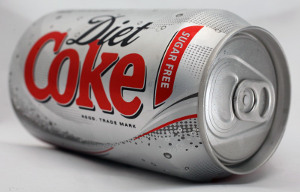 world’s largest beverage company, reported second-quarter sales that missed analysts’ estimates amid sluggish demand for drinks such as juice and Diet Coke in North America.
world’s largest beverage company, reported second-quarter sales that missed analysts’ estimates amid sluggish demand for drinks such as juice and Diet Coke in North America.Revenue fell 1.4 per cent to $12.6 billion in the period ended June 27, Atlanta-based Coca-Cola said today in a statement. Analysts had estimated $12.8 billion on average, according to data compiled by Bloomberg. Global juice sales volume declined 1 per cent, hurt by price increases in North America to offset higher ingredient costs.
Chief Executive Officer Muhtar Kent is cutting costs and overhauling marketing as he contends with a slowdown in the market for fizzy beverages. Coca-Cola also is increasingly relying on overseas markets to maintain growth.
“Coke’s Q2 result was weaker than expected,” said Dara Mohsenian, an analyst at Morgan Stanley in New York. “The bar is low for Coke, but with weak topline results, worse than expected underlying profit, and slight negative EPS guidance revisions in H2, we would expect the stock to be down today.”
Global sales volume rose 3 per cent in the quarter, matching the average of four analysts’ estimates compiled by Bloomberg. Sales volumes in key Europe, Latin America and North America business units were little changed. Brand Coca-Cola volume grew 1 per cent in the quarter, a sequential improvement.
Gross Margin
Gross margin in the quarter rose to 61.7 per cent from 60.9 per cent a year ago. Analysts had estimated 61.1 per cent. The additional cash was largely spent to boost global marketing, the company said.
“We remain focused on the work required to return our business to the level of sustainable growth we and our shareowners expect,” Kent said in the statement.
Net income fell 3 per cent to $2.6 billion, or 58 cents a share, from $2.68 billion, or 59 cents, a year earlier, Excluding some items, earnings were 64 cents a share, compared with a 63-cent average of 19 analysts’ estimates compiled by Bloomberg.







